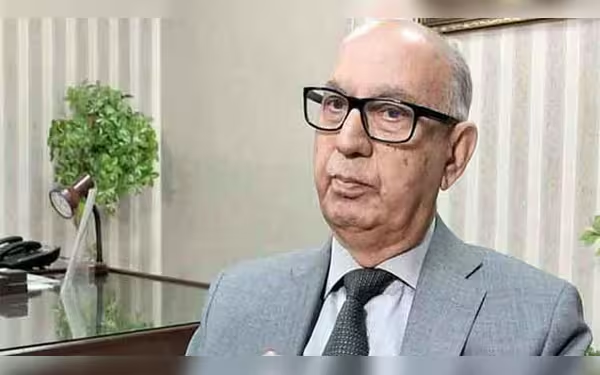Wednesday, January 15, 2025 09:46 PM
Irfan Siddique Critiques PTI's Attacks on National Institutions
- PTI accused of negative politics since 2014.
- Protests in Islamabad raise ethical concerns.
- Political chaos undermines trust in institutions.
 Image Credits: dunyanews.tv
Image Credits: dunyanews.tvIrfan Siddique criticizes PTI for negative politics and undermining national institutions, emphasizing the need for constructive dialogue.
In recent years, the political landscape of Pakistan has been marked by intense rivalry and conflict, particularly involving the Pakistan Tehreek-e-Insaf (PTI) party. Since its rise to prominence in 2014, PTI has been accused of engaging in negative politics, which many believe has contributed to a climate of chaos and instability in the country. Irfan Siddique, a prominent political analyst, has voiced strong concerns regarding PTI's track record, particularly in relation to its interactions with national institutions.
During a recent interview on a private television channel, Siddique highlighted the troubling trend of PTI's actions, stating, "Since 2014, PTI has been doing negative politics and spreading chaos in the country." This assertion underscores a growing sentiment among critics who argue that the party's approach has often undermined the very foundations of governance and public order.
One of the most alarming incidents cited by Siddique was the recent protest demonstration organized by PTI leaders from Khyber Pakhtunkhwa. According to him, these leaders utilized official machinery to orchestrate a law and order situation in the federal capital. This not only raises questions about the ethical use of government resources but also highlights the potential for political actions to escalate into broader unrest.
The implications of such actions are significant. When political parties resort to chaos and disorder, it can lead to a breakdown of trust in national institutions, which are essential for maintaining stability and governance. Citizens rely on these institutions to function effectively, and any disruption can have far-reaching consequences for the country's democratic processes.
As Pakistan navigates its complex political landscape, it is crucial for all parties, including PTI, to reflect on their strategies and the impact of their actions. Engaging in constructive dialogue and fostering a spirit of cooperation may be more beneficial than perpetuating cycles of conflict. Ultimately, the future of Pakistan's democracy depends on the ability of its leaders to prioritize the nation's interests over political gain.













